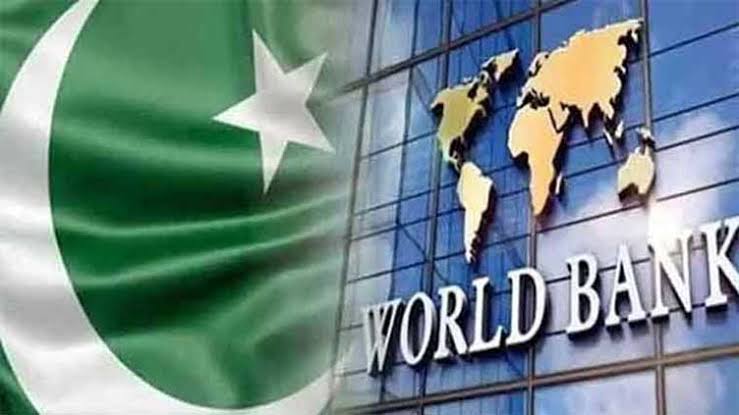Pakistan World Bank financial cooperation 2025 Pakistan’s Finance Minister Aurangzeb Seeks Stronger World Bank Partnership to Boost Economic Growth
Focus Keyword: Pakistan World Bank financial support 2025
Meta Description:
Pakistan’s Finance Minister Muhammad Aurangzeb met with World Bank President Ajay Banga to discuss expanded financial assistance, economic reforms, and long-term growth strategies for Pakistan’s struggling economy under the 2025 stabilization program.
Pakistan World Bank financial cooperation 2025 Introduction
Pakistan is taking renewed steps toward economic recovery and financial stability through global partnerships. In a key development, Finance Minister Muhammad Aurangzeb held an important meeting with World Bank President Ajay Banga, seeking extended financial and technical support for Pakistan’s economic reform agenda. The discussion revolved around sustainable growth, debt management, and strategic investments in critical sectors to restore investor confidence and long-term fiscal health.
This meeting comes at a crucial time when Pakistan continues to face economic challenges, including inflation, a high debt burden, and sluggish growth. Strengthening ties with international financial institutions like the World Bank is seen as an essential part of the country’s ongoing stabilization strategy.
Pakistan World Bank financial cooperation 2025 Background: Pakistan’s Economic Challenges
Over the past few years, Pakistan’s economy has been under pressure due to global market fluctuations, declining exports, and natural disasters such as floods that impacted agriculture and infrastructure.
The government’s top priority remains to restore macroeconomic stability while ensuring social welfare and inclusive development.
Despite multiple reform programs, Pakistan continues to rely heavily on international partners for financial assistance. The World Bank has been a longstanding ally, funding projects across infrastructure, health, education, and climate resilience. The recent meeting aims to deepen that collaboration to ensure Pakistan remains on a path of sustainable recovery.
Pakistan World Bank financial cooperation 2025 Key Points Discussed in the Meeting
1. Expanding Financial Support
During the meeting, Finance Minister Aurangzeb emphasized the need for additional funding to stabilize the national economy. He highlighted Pakistan’s commitment to fiscal discipline and transparency in financial management — key areas the World Bank closely monitors before approving support packages.
The minister also requested assistance for development projects in the energy, agriculture, and digital sectors. The World Bank President assured continued engagement and expressed confidence in Pakistan’s reform direction.
2. Focus on Structural Reforms
The discussion underscored the importance of implementing structural reforms to enhance governance, boost tax revenue, and control inflation. The World Bank’s policy experts praised Pakistan’s recent steps toward broadening the tax base and reducing circular debt in the energy sector.
Finance Minister Aurangzeb also reaffirmed that Pakistan’s government is working to improve its regulatory environment to attract foreign investment, particularly in renewable energy and digital infrastructure.
3. Green Economy and Climate Resilience
Both sides agreed on the need to invest more in climate adaptation projects, considering the devastating floods that hit Pakistan in recent years. The World Bank pledged technical assistance to strengthen the country’s climate resilience, emphasizing sustainable agriculture and eco-friendly energy solutions.
Pakistan World Bank financial cooperation 2025 World Bank’s Commitment to Pakistan
The World Bank has been one of Pakistan’s largest development partners for decades, supporting projects that directly impact millions of citizens.
From rural development to healthcare and education, the Bank’s programs have played a crucial role in improving living standards.
Ajay Banga reaffirmed the Bank’s long-term commitment to Pakistan’s stability and progress. He highlighted that the institution’s financial and advisory assistance would continue to focus on three major pillars:
-
Economic Stability: Supporting fiscal reforms, reducing debt, and managing inflation.
-
Social Protection: Enhancing access to education, healthcare, and poverty alleviation programs.
-
Sustainability: Promoting renewable energy and climate-smart infrastructure.
Aurangzeb’s Reform Agenda
Finance Minister Muhammad Aurangzeb has gained international recognition for his pragmatic approach and his commitment to restoring Pakistan’s economic integrity. Since assuming office, he has prioritized transparency, digitalization of the financial sector, and strict monitoring of public expenditures.
Aurangzeb’s focus on rebuilding trust with global institutions has resulted in renewed interest from investors and lenders alike. His meeting with the World Bank is a continuation of this effort to position Pakistan as a reliable and reform-oriented economy ready for growth.
Why This Meeting Matters for Pakistan’s Future
1. Restoring International Confidence
Securing additional financial assistance from the World Bank helps Pakistan send a strong message to the international community that it is serious about reform. It also improves the country’s credit outlook and makes it easier to attract foreign investments.
2. Accelerating Development Projects
More funding means faster implementation of infrastructure, healthcare, and education projects — key components of inclusive growth.
3. Supporting Social Welfare
The partnership ensures that Pakistan’s vulnerable populations continue to receive assistance, particularly in rural areas affected by poverty and natural disasters.
Challenges Ahead
While the meeting marks an encouraging development, Pakistan’s road to recovery remains complex. The success of any financial support program depends on effective governance and accountability. Experts stress that Pakistan must continue implementing reforms without political disruptions to maintain international confidence.
Inflation control, job creation, and sustainable growth remain top priorities. Pakistan will also need to focus on export diversification and private-sector development to reduce dependency on external loans over time.
Pakistan World Bank financial cooperation 2025 Conclusion
The meeting between Finance Minister Muhammad Aurangzeb and World Bank President Ajay Banga represents a renewed chapter in Pakistan’s global economic relations.
It signals hope for a more stable and prosperous future, backed by responsible financial management and international collaboration.
By emphasizing reform, transparency, and long-term planning, Pakistan is positioning itself to overcome economic hurdles and enter a phase of sustainable growth.
With continued support from institutions like the World Bank, the country can move closer to achieving financial independence and inclusive national development.

